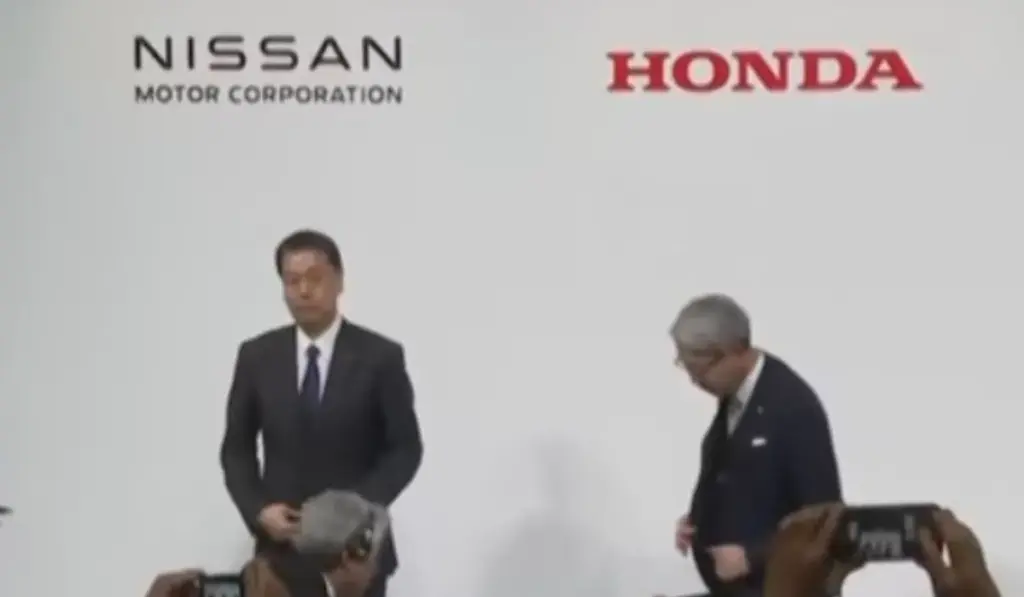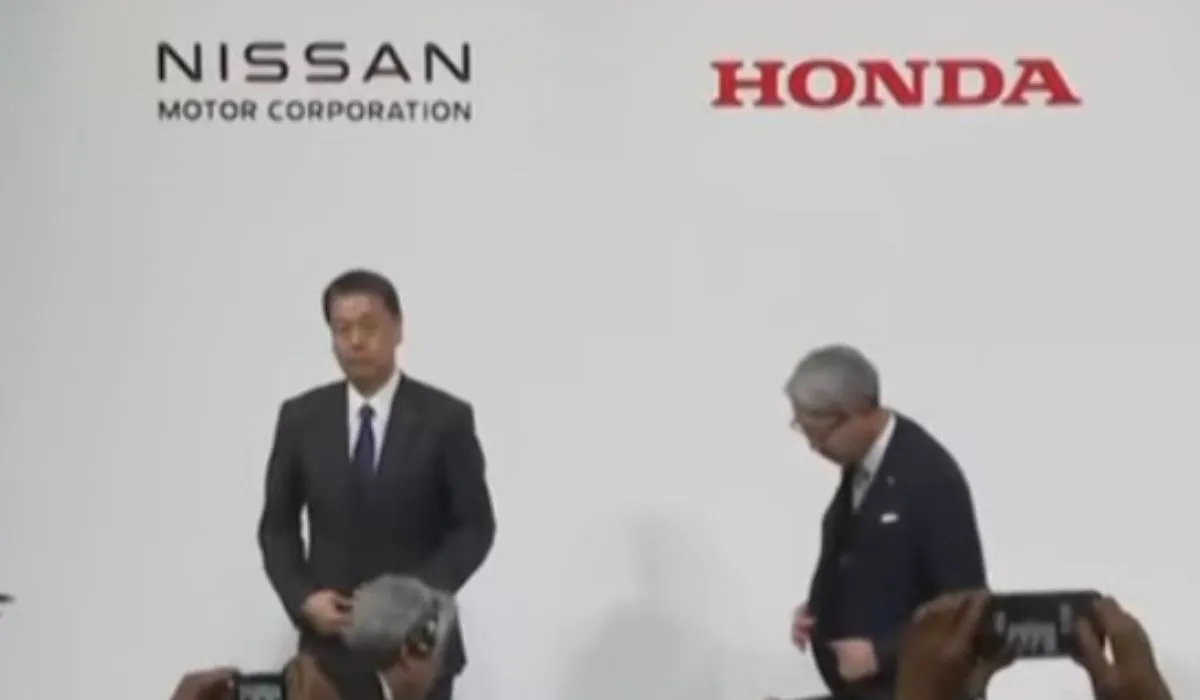In a groundbreaking development in the global automotive industry, Nissan Motor Co. and Honda Motor Co. have announced their intention to merge operations, forming a new entity that would become the world’s third-largest automaker.
The strategic alliance, revealed in a joint statement on Friday, aims to combine the strengths of both Japanese automotive giants to better compete in a rapidly evolving industry dominated by electrification, autonomous driving technologies, and global sustainability goals.
Table of Contents
A Historic Partnership
The merger marks a significant milestone for Japan’s automotive sector. Historically, Nissan and Honda have operated independently, competing fiercely in global markets.
However, the companies are now choosing collaboration over competition, driven by shared challenges and opportunities in the face of industry disruptions.
“By joining forces, Nissan and Honda will not only enhance their technological capabilities but also achieve economies of scale to deliver greater value to customers worldwide,” said Makoto Uchida, CEO of Nissan.
Toshihiro Mibe, CEO of Honda, echoed this sentiment, emphasizing that the merger will allow the companies to accelerate their shared vision of sustainable mobility.
The Path to Becoming the World’s No. 3 Automaker
When combined, the new entity is expected to surpass other major players to secure the position of the world’s third-largest automaker by production volume.
Currently, Toyota and Volkswagen hold the top two spots, with Hyundai-Kia ranking third. The Nissan-Honda merger is anticipated to produce a combined output of over 10 million vehicles annually, putting them ahead of Hyundai-Kia.
This merger positions Nissan and Honda as formidable competitors in the race to dominate the electric vehicle (EV) market, a sector witnessing exponential growth due to increasing environmental awareness and government mandates for carbon neutrality.
Key Goals of the Merger
The alliance is not just about scaling up production; it is rooted in a shared vision for the future of transportation. Some key objectives of the merger include:
- Accelerated EV Development:
Both Nissan and Honda have committed to electrification, with plans to introduce a wider range of affordable and efficient EVs. By pooling resources, the companies aim to fast-track research and development while reducing costs. - Advancements in Autonomous Driving:
Autonomous driving technologies are seen as the next frontier in automotive innovation. The merger will enable both companies to share expertise and expedite the rollout of self-driving vehicles. - Cost Optimization:
The partnership will leverage synergies in manufacturing, supply chain management, and procurement to reduce costs. Shared platforms for vehicles and components are expected to significantly lower production expenses. - Global Market Expansion:
With combined resources, Nissan and Honda plan to strengthen their foothold in emerging markets while maintaining dominance in established markets like North America and Europe.
Challenges Ahead

While the merger offers immense potential, it is not without challenges. Integrating two massive organizations with distinct corporate cultures and operating styles will require careful planning and execution.
Additionally, regulatory approvals in various countries may present hurdles, as governments scrutinize such significant consolidations for potential antitrust issues.
Moreover, both companies will need to address concerns from employees, suppliers, and customers to ensure a smooth transition. Analysts suggest that transparent communication and a clear roadmap for integration will be critical for the success of this merger.
Industry Reaction
The announcement has sent ripples through the global automotive industry. Competitors, investors, and analysts are closely monitoring the development, recognizing its potential to reshape the competitive landscape.
“This merger has the power to redefine the industry, particularly in the EV space,” said John Anderson, an automotive industry analyst. “By combining their strengths, Nissan and Honda can challenge the dominance of Tesla, Toyota, and Volkswagen.”
Stock markets responded positively to the news, with shares of both companies experiencing a surge. This reflects investor confidence in the strategic rationale behind the merger and its potential to drive long-term growth.
Impact on the EV Market
The merger comes at a time when the global EV market is booming. Governments worldwide are implementing stricter emissions regulations and offering incentives for EV adoption, creating a favorable environment for automakers investing in green technologies.
Nissan has already made significant strides in the EV market with its popular Leaf model, while Honda has been actively developing hybrid and electric vehicles. By joining forces, the companies aim to launch a new generation of EVs that combine cutting-edge technology with affordability.
“Together, we can lead the charge toward a more sustainable future,” said Uchida, emphasizing the merger’s potential to accelerate the global transition to zero-emission vehicles.
Global Implications
The Nissan-Honda merger has far-reaching implications beyond the automotive sector. It symbolizes a shift in corporate strategy, with companies recognizing the need for collaboration to address shared challenges.
For Japan, the merger reinforces its position as a leader in automotive innovation, showcasing the country’s ability to adapt and thrive in a competitive global market. It also strengthens Japan’s influence in shaping the future of mobility, particularly in the EV and autonomous driving sectors.
Consumer Benefits
For consumers, the merger promises a host of benefits, including a wider range of vehicles, enhanced features, and improved affordability.
By leveraging shared technologies and resources, Nissan and Honda aim to deliver products that cater to diverse needs while maintaining the highest standards of quality and reliability.
“This merger is a win for customers, offering them access to more innovative and sustainable vehicles,” said Mibe.
Bottom Line
The merger of Nissan and Honda represents a transformative moment in the global automotive industry.
By combining their strengths, the two companies are poised to reshape the competitive landscape, accelerate innovation, and drive the transition to a more sustainable future.
As the world watches this historic partnership unfold, the Nissan-Honda alliance stands as a testament to the power of collaboration in overcoming challenges and seizing opportunities in an ever-changing industry.
With a clear vision and a shared commitment to progress, this merger has the potential to set a new benchmark for excellence in the automotive sector.
Also Read: A Million Taxpayers to Receive Big $1,400 from the IRS: What You Need to Know






